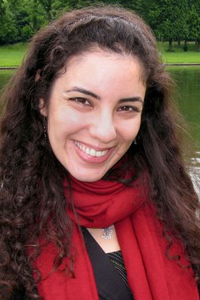Sponsored by the UCLA Brain Mapping Center Faculty
The focus of these talks is on advancing the use of brain mapping methods in neuroscience with an emphasis on contemporary issues of neuroplasticity, neurodevelopment, and biomarker development in neuropsychiatric disease.
Hosted By: Marco Iacoboni, M.D., Ph.D., Psychiatry and Biobehavioral Sciences, UCLA
 |
Lisa Aziz-Zadeh, Ph.D. Assistant Professor, Brain and Creativity Institute and Department of Occupational Science, University of Southern California |
While we know that shared neural circuits, like the mirror neuron system, are active for processing both the self and the other, it is not known how such activity is modulated by how different the observed person is from the observer’s self. Do you still use your own body representations to observe and empathize with individuals who are highly dissimilar from yourself? In a series of studies we show that we do activate our own sensorimotor representations when understanding individuals who are drastically different from ourselves, even for those who are from disliked social groups. In some instances, we even activate these shared circuits more for the dissimilar other than for similar others. Furthermore, our work suggests that differences in activity for dissimilar others versus similar others can be attenuated by experience with the dissimilar other. In the second part of my talk I discuss how the mirror system may be compromised in two clinical cases: dyspraxia and stroke, and relate these findings to the involvement of the mirror system in motor learning.